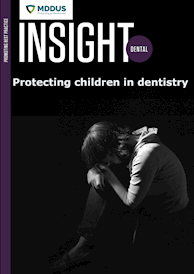TRUST is a subject that I visit and revisit regularly with my clients. It is arguably the biggest factor leading to success, or failure, in a business. That its meaning is close to “faith” implies much for our relationships, whether between individuals, businesses or organisations, but especially in the potentially uneven relationship between a patient and clinician, or their representatives.
Simply put, I believe trust can be defined as “the belief and confidence in the ability and reliability of someone”.
In her 2002 Reith Lectures, “A Question of Trust” and subsequently on her TED Talk, Dame Onora O’Neill has explored the nature of trust. As you would expect from one of the world’s leading thinkers and philosophers her conclusions are worth considering.
She believes that what is most important is not trust itself but “trustworthiness”. Trust is the response to trustworthiness. Her conclusions are that one should always make oneself vulnerable to the other party and should give them adequate, simple and useful information that you are trustworthy.
Easy to say and to write but how do we go about it?
The secret to being “trustworthy”
Start with empathy. I know this is an overused word and sometimes its suggested use makes it sound as if you can open a box and dole it out by the spoonful. Simply, empathy is the ability to understand and share the feelings of another. We cannot walk in the patient’s shoes (in spite of what the gurus would have you believe) but we can try to understand the motives for their journey, the terrain they have covered and the challenges faced. It’s a two-way street.
Next use logic. Know and understand your messages. Be able to communicate briefly, clearly and without waffle so your core message gets through. That takes skill, thought and practice. All great communicators look as if they “just turn up and do it”; they don’t. Winging it only results in failure.
Finally be authentic. That is easier to do if you are dealing with people who are like you – it’s more of a challenge if they are not. By being who you truly are, you are more likely to be trusted. In order to be authentic you need to understand yourself, have clear motives and above all be self-honest.
Trust starts early. During the course of my career we have moved from an environment where it was always presumed that “Doctor knows best” to one where Dr Google will tell you exactly what you want to hear, if you want to listen at all, and the consumer is “king or queen”. Neither system serves the patient and the clinician best.
Trust in marketing
In a largely unregulated internet there is a temptation to copy and out-do one’s perceived competitors. A down side of this is the temptation to use hyperbole until it becomes tired, repetitive and plain boring. We have all seen dental websites that are virtual clones in terms of style, claims and content of others. If your marketing is not authentic then you will not attract the patients who will make you happy and successful.
This is usually the point where, if I am speaking to an audience, I tell two stories. The first concerns that pre-internet icon, Yellow Pages, and how I reduced my presence from a half-page (expensive) advert to a single line (free) entry over a five-year period. The second was how we became a “personal invitation/introduction/recommendation only” practice in order to take control of whom we treated.
The reason I tell those stories is not to prove how clever we were, rather to encourage others to use their imaginations on how they want to live their professional lives. Marketing, as I was taught many years ago, is about controlling who you attract. Cast a big net with a fine mesh and you have to spend a lot of time throwing back the very small ones. Overfish the territory and there will be nothing left for the years to come.
I will share a couple of concerns that I have currently. The first is the attachment of a product name to certain treatments and the promotion of the practice by the product supplier and vice-versa. In my opinion (and that is all it is) there is a risk of the product calling the shots in the marketplace and, by promoting themselves and their product, possibly confusing patients. This is an article about trust remember, and that trust is between the clinician and the patient. The clinician carries responsibility for the choice and use of materials and for ensuring there is no confusion over “brand”.
The other is the use of “sales teams” within the practice. Delegating communication to others is a great use of resources and has untold benefits but ultimate responsibility still lies with the clinician. Simply – you must be able to trust someone who is creating trust on your behalf.
The great jazz trumpeter Miles Davies said: “Time isn’t the main thing, it’s the only thing”. I believe that you can say the same about trust.
This page was correct at the time of publication. Any guidance is intended as general guidance for members only. If you are a member and need specific advice relating to your own circumstances, please contact one of our advisers.
Read more from this issue of Insight Dental

Save this article
Save this article to a list of favourite articles which members can access in their account.
Save to library



